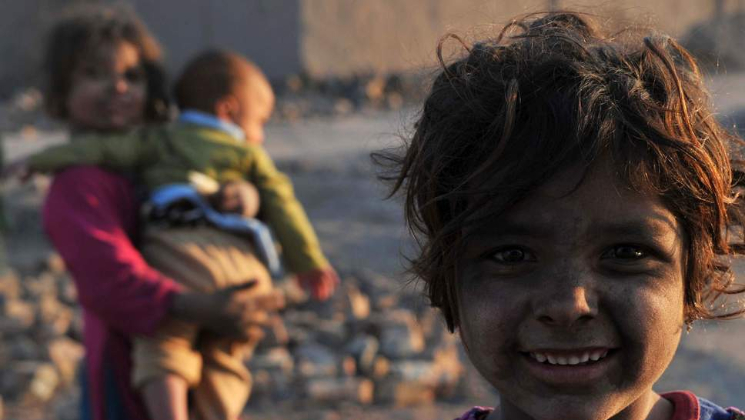- Sponsored -
In ‘post-war’ Afghanistan, children’s lives still scarred by violence and fear

By Majidullah Rasooli
After three decades of war, Afghanistan is still not a secure place to live in. It is perhaps the most dangerous place to be born. Although after 2001 Afghanistan is considered to be a “post-war country”, violence, suffering, injustice, inequality, illiteracy and poverty remain unpleasant reminders of conflict in daily life. The “post-war” tag doesn’t make sense.
- Sponsored -
In addition to the many injuries from landmines and artillery, over 80 per cent of Afghan children reveal the psychological scars of war.
A survey conducted by the United Nations Children’s Fund (UNICEF) on the effect of war on children aged 8-18 in Kabul indicated that 41 per cent had lost one or more parents because of the conflict, and over half of them had witnessed torture and violent deaths around them.
My personal experience of what it means to be a child in a war-torn country forms the background of this analysis. Parents, families, writers, journalists, poets, schools and government and other non-government institutions are involved and responsible for creating children’s worldview in a society full of antagonism, hatred, and war.
From my childhood, I recall war, violence, killing, injuries, burning of buildings and sounds of different jet fighters, rockets and landmines, which affected my way of seeing and understanding the world. There is no change in the situation for my sons, and hundreds of other children living in the country. Violence and pain are still everyday experiences of people in Afghanistan, either directly or through the media.
Family and socio-economic background greatly influence children’s worldview. We learn from our environment how to behave and maintain social order in society.
Parent’s beliefs and their worldview affect their children’s beliefs and worldview. In creating a wider outlook for children several other influences are necessary, including those of teachers, care takers, other adults and institutions working for children.
Story books, storytelling, school books and comics are also important factors which shape a child’s worldview, as are toys, computer games, music and films.
I was in my uncle’s house a few years ago when there were five adults between the ages of 28 and 65 and 15 children aged between 2 and 12. Two persons had pistols and they set up a sign and started shooting at the sign. The children were happy watching their parents firing the guns.
My son Muzzamel was with me. He is four years old. I took him away from the firing and got him busy with my mobile phone football game. After they finished, I asked them how they could do this in front of their children. Their response was simple: The children need to learn these things because one lived in a country where everybody should know how to use guns.
Plastic guns imported from Pakistan are common and the most liked playthings by the children. Use of guns has become normal for most parents.
The everyday experience of bomb blasts, war, instability and poverty affect the psychology of children. They do not have the facilities for entertainment like public parks, cinemas and other leisure places which can have a great influence on their life and personality. In Afghanistan children are mostly deprived of the space outside their homes. Children are scared of going out, even those who go to school.
In such a complex situation, a child’s worldview is constructed by the adult’s world, which is loaded with fear, anxiety, insecurity and instability.
As one nine-year-old from Panjsher Valley told Save the Children in an interview: “I want to grow up as quickly as I can so that I can have a gun and find my father’s killer. And I will kill him because he killed my father.”
Even institutions involved in children’s welfare find it difficult to provide an alternate worldview free from war, violence and hatred.
(Majidullah Rasooli is a strategy and policy analyst at the Ministry of National Defence, Afghanistan. The article is in special arrangement with South Asia Monitor).
–IANS
Photo Credit-www.independent.co.uk
- Sponsored -
